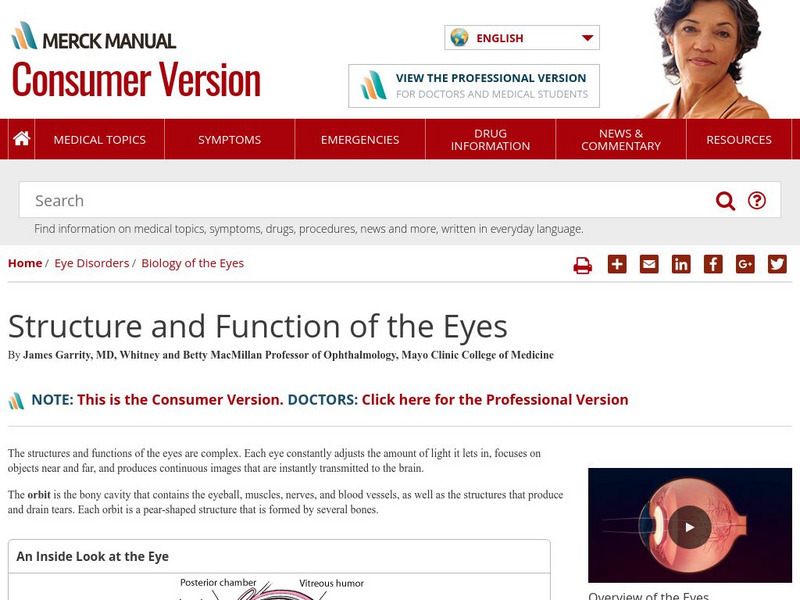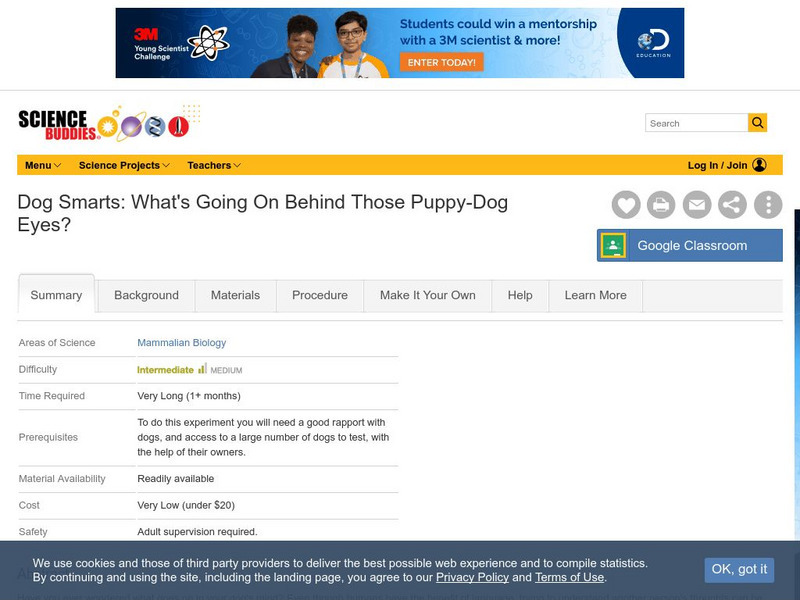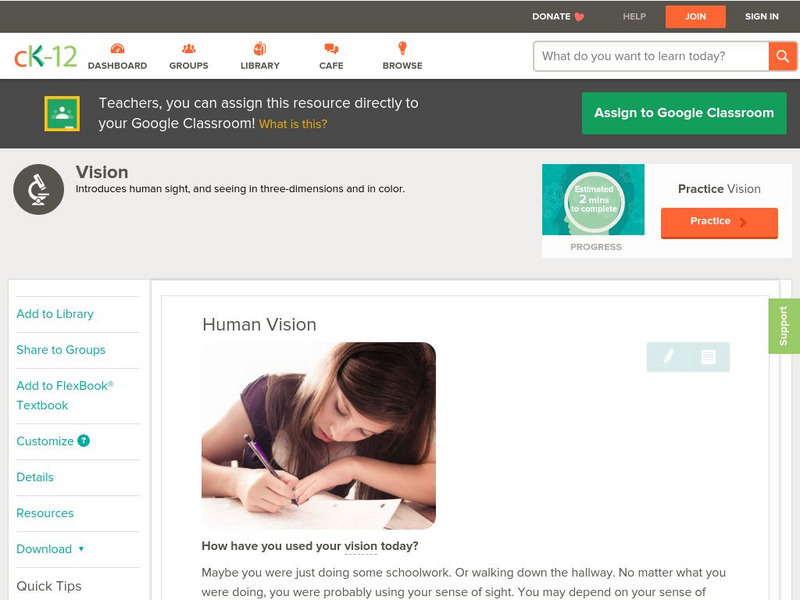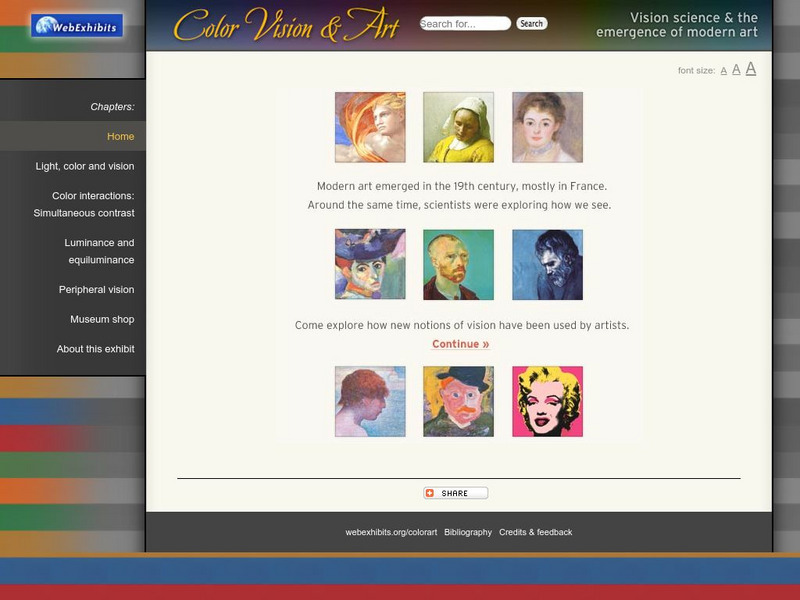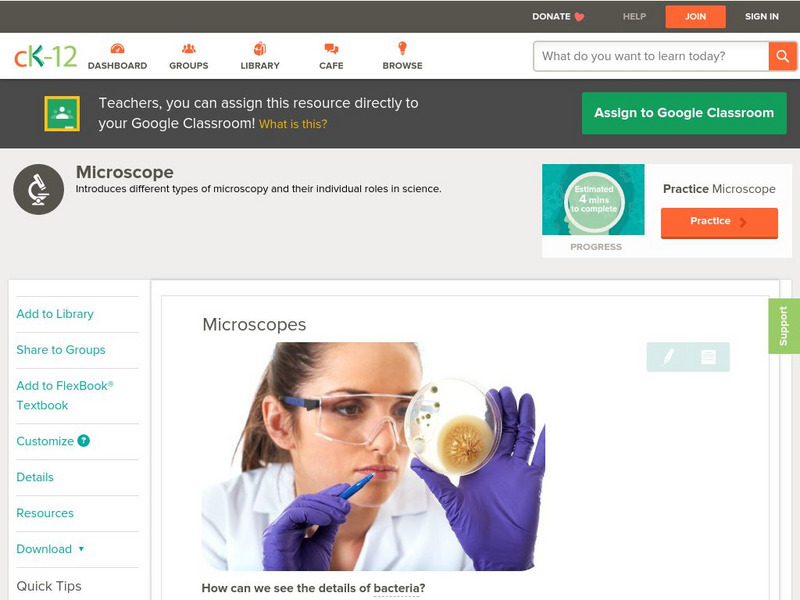Curated OER
The Effects of Alcohol and other Teratogens: A model using Zebrafish
High schoolers investigate the interference of various drugs on an embryo through experimentation. This is an open-ended lab to allow students to see effects of various chemicals humans choose to put in their bodies and create...
Curated OER
The Empirical Challenges of Racial Classification
This lesson will help students examine their preconceptions and assumptions about racial categories and understand the impossibility of constructing a consistent system of human racial classification.
Curated OER
Structure and Function
Structure and Function
SynopsisStudents choose some biological object, examine its structure, and identify or speculate on one particular function. Next they create a blueprint of the object, focusing on the particular function. Then...
Curated OER
Genetic Research: Decisions to be Made
High schoolers examine the genetics involved in the human genome. They brainstorm the advantages and disadvantages to this discovery. They research different experts opinion and write a case study which addresses an ethical dilemma.
Exploratorium
Pixels, Pictures, and Phones
Take a real close look at your phone screen. What do you see? Here's an activity that provides guidance on how to look at a smart phone screen in order to see the pixels and to see how the phone creates colors and motion on the...
Curated OER
Reptiles
In this reptiles worksheet, students identify and label the different parts of reptiles. They complete 10 short answer questions after reading the information provided in the worksheet.
Curated OER
Comparison of Normal vs Mutant Zebra Fish Embryos
Students observe and study mutations. In this mutations lesson, students work in groups to complete observation tables of various mutations of the zebra fish embryos. Groups give presentations about their observations.
PBS
Lesson Plan: “Seeing the Way: A Brief History of Cataract Surgery”
After looking at the history of cataract surgery techniques, your high schoolers will have a new perspective on medical and scientific advances. Kids alternate between watching short video clips, class discussion, and computer research....
Curated OER
Primate Evolution
In this primate evolution worksheet, students will review the structures and functions that are characteristic of primates. Students will identify the differences between Old World monkeys, New World monkeys, and prosimians. This...
Curated OER
Sponges, Cnidarians, Flatworms, and Roundworms
In this simple animals worksheet, students read information about sponges, cnidarians, flatworms, and roundworms and then complete a chart comparing and contrasting these groups of animals. This worksheet has 11 fill in the blank questions.
Sunlight Cal-Tech
Chromatography of Plant Pigments
Through a hands-on activity, an acetone-spinach solution is pre-made and learners use this solution to separate the pigments found in spinach using chromatography. The comprehensive resource includes an analysis and conclusion...
Curated OER
Genetics Practice 1: Basic Mendelian Genetics
Six genetics problems are to be solved by junior geneticists. Empty Punnett squares are provided for them to plant the parents' alleles and determine the genotype, phenotype, and frequency of offspring. All of the problems involve actual...
Curated OER
Telling Our Own Stories
Explore online profiles and social media with your middle and high school classes. Use blogs to inspire your class to craft a well-written, thoughtful response to a prompt you give. A few example prompts are given.
Curated OER
Dihybrid Cross Punnett Squares
For this dihybrid cross worksheet, learners complete two punnett squares for the cross of two traits. They determine the genotypes, phenotypes and phenotypic ratios of the offspring.
Merck Sharp & Dohme Corp.
Merck Manual: Structure and Function of the Eye
This site provides a an excellent guide to the structure and function of the human eye. Content addresses how the eye is built, as well as how it works to translate light and shadow into sight. A diagram illustrating the various parts of...
Biology Pages
Kimball's Biology Pages: The Human Eye
Written by a former author of Biology textbooks, this page describes not only color vision, but the anatomy of the eye, and color blindness. Easy to understand language.
TeachEngineering
Teach Engineering: Waves: The Three Color Mystery
Students are presented with a challenge question concerning color blindness and asked to use engineering principles to design devices to help people who are color blind. Using the legacy cycle as a model, this unit is comprised of five...
Science Buddies
Science Buddies: Dog Smarts: What's Going on Behind Those Puppy Dog Eyes?
Have you ever wondered what goes on in your dog's mind? Even though humans have the benefit of language, trying to understand another person's thoughts can be hard enough sometimes. This project will show you some behavioral tests you...
CK-12 Foundation
Ck 12: Life Science: Human Vision
[Free Registration/Login may be required to access all resource tools.] Sight, or vision, is the ability to see light. It depends on the eyes detecting light and forming images. It also depends on the brain making sense of the images, so...
Science Buddies
Science Buddies: Now You See It, Now You Don't! Test Your Peripheral Vision
The survival of our ancient ancestors depended on their ability to use peripheral vision to find prey and to avoid predators. Almost everything we do-from riding a bike, to dribbling a basketball, to reading a book-depends on peripheral...
BiologyWise
Biology Wise: Genetic Mutations in Humans
Discusses common mutations that occur in the human population and describes the many different types of genetic mutations and their impact.
Institute for Dynamic Educational Advancement
Web Exhibits: Color Vision & Art
This online exhibit demonstrates how human vision works and has influenced Western art. It combines the biology of vision and art history. The exhibit focuses on the eye and its response to color and contrast while highlighting several...
Other
Marine Biological Laboratory: Why Study Marine Organisms for Biomedical Research
Descriptions of various research projects using marine organisms that have direct impact on medical research. The resource has a perspective on how medicine makes progress.
CK-12 Foundation
Ck 12: Life Science: Microscopes
[Free Registration/Login may be required to access all resource tools.] A microscope is a tool used to make things that are too small to be seen by the human eye look bigger. Before microscopes were invented in 1595, the smallest things...














